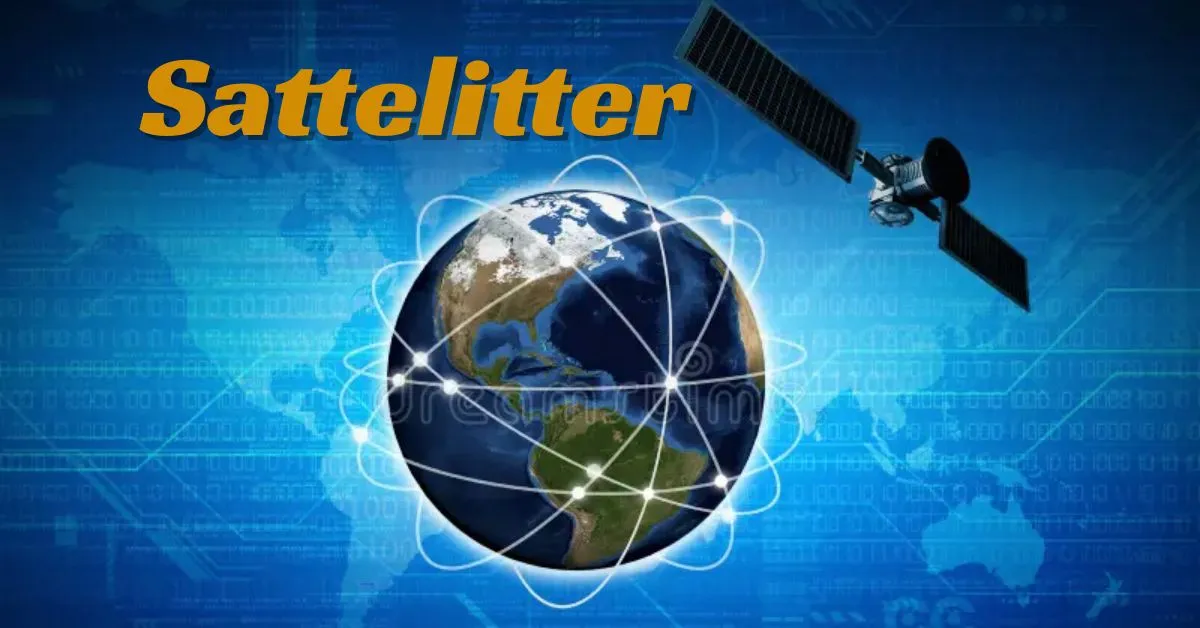Sattelitter: Meaning, Origin, Translation Error, and Tech Relevance Explained
In the fast-paced digital world, unique and unusual terms often surface and capture curiosity—“Sattelitter” is one such example. It might seem like a strange typo at first, but there’s more to it than meets the eye. Behind the unusual spelling lies a deeper story involving language crossover, translation issues, and technological relevance. This article breaks it all down for you—whether you’re a linguist, tech enthusiast, or simply stumbled upon the word in a search.
What Does “Sattelitter” Really Mean?
A Linguistic Breakdown: From Satellitt to Sattelitter
“Sattelitter” is not found in standard English dictionaries, which leads many to believe it’s a mistake or a misunderstood word. However, its roots lie in the Norwegian language, specifically as a potential variation of the word “satellitt.” In Norwegian Bokmål, “satellitt” translates to “satellite” in English, and its plural form is “satellitter.” Hence, “Sattelitter” appears to be an accidental combination, mixing Norwegian spelling conventions with slight errors.
These misspellings often occur when individuals translate content using automated tools or type out unfamiliar words phonetically. In such cases, even a slight deviation in spelling can lead to major confusion for both readers and search engines. Linguists and content creators alike must be cautious when interpreting these hybrid or erroneous forms. Understanding these patterns can lead to better comprehension of multilingual internet content and smarter communication practices.
The Norwegian Connection: Satellitt vs. Sattelitter
Norwegian Bokmål and Its Plural Forms
Norwegian Bokmål, one of the two official written standards in Norway, is widely used by the Norwegian population and in educational settings. In this dialect, the word “satellitt” (meaning satellite) is used in both scientific and casual contexts to describe artificial satellites orbiting the Earth. When referring to more than one, Norwegians use the word “satellitter,” which is the grammatically correct plural form.
The term “Sattelitter,” however, doesn’t follow the standard grammatical structure of the language and likely results from phonetic spelling or translation confusion. Such anomalies frequently appear when non-native speakers attempt to merge language rules or when digital tools like Google Translate misinterpret original phrases. It’s a perfect example of how minor spelling changes can create entirely new, unintended words. For accurate communication, distinguishing between correct and incorrect terms is essential.
Where You Might Encounter “Sattelitter”
Online Content, Forums, and Translations
You may come across the term “Sattelitter” in several online contexts, especially where Norwegian and English languages intersect. This includes bilingual blogs, forums discussing space tech, or social media posts by Scandinavian users. Since “satellitter” is a plural Norwegian term, non-native writers might accidentally create or publish content containing the variant “Sattelitter” during translation or transcription.
Translation tools often interpret foreign words too literally, leading to spelling variants that deviate from grammatical norms. For instance, a forum thread discussing Norwegian satellite monitoring may include “Sattelitter” due to the influence of a speech-to-text tool or user error. These occurrences are more common than they seem, especially on platforms with heavy user interaction. Understanding where and why “Sattelitter” appears can help you identify the intended meaning and avoid misunderstandings.
Technological Relevance: Satellites and Space Discourse
Why the Word (Even Misspelled) Still Matters
Even though “Sattelitter” is technically a misspelling, it still connects to major global conversations around satellite technologies. Satellites play a vital role in modern communication, environmental monitoring, military defense, and even GPS navigation. In regions like Scandinavia, where climate observation is key, satellites (or “satellitter”) are crucial in tracking glacier movement and atmospheric patterns.
The presence of “Sattelitter” in such contexts suggests that it may stem from genuine interest in these scientific fields, albeit with minor linguistic errors. Bloggers, researchers, and educators writing in both Norwegian and English might unintentionally mix spellings, especially if they’re switching between languages. As a result, this word becomes part of the broader narrative on how digital tools and bilingual usage affect our understanding of technical topics. Recognizing and correcting such terms leads to better information accuracy.
SEO Insight: Why Typos Like “Sattelitter” Matter in Search Engines
Keyword Variation and Search Optimization
In the field of Search Engine Optimization (SEO), even incorrect spellings like “Sattelitter” can have a surprising impact. Typos, alternative spellings, and misspelled keywords often show up in search logs, especially when users type queries in a hurry or from a non-English-speaking background. Including or accounting for these variations in your SEO strategy can help reach a broader audience.
If you’re optimizing content related to satellites, space tech, or Norwegian-English translations, targeting keywords like “Sattelitter” might help you capture traffic from users making common typing mistakes. This practice, often called typo-SEO, is especially relevant in blogs, FAQs, or user-generated forums. Being aware of these trends can give your content a competitive edge in international and multilingual niches. Just make sure to clarify the correct term in your content to maintain professionalism.
Common Contexts for “Sattelitter” in Real Usage
Translations and Typing Mistakes
The most common reasons why “Sattelitter” appears in digital content are related to translation errors and human typos. Tools like Google Translate sometimes misinterpret pluralization or mix up characters when shifting between languages. Similarly, language learners or bilingual users may rely on memory or phonetics, leading to the creation of hybrid terms like “Sattelitter.”
Another major context is user forums or crowdsourced content platforms where non-professional writers share opinions, reviews, or discussions. These environments are less strict about language standards, increasing the chance of such misspellings appearing. Educators and translators should be particularly aware of these issues when creating learning materials or translating scientific texts. Understanding these patterns provides deeper insight into cross-linguistic usage in today’s digital space.
Clarifying the Correct Terms
Use This Instead
For anyone writing or searching about satellites, using the correct terminology is essential to ensure clarity and accuracy. Here’s a simple breakdown: in English, the singular form is “satellite” and the plural form is “satellites.” In Norwegian, the singular is “satellitt” and the plural is “satellitter.” These distinctions are key when reading or producing bilingual or translated material.
“Sattelitter,” by contrast, doesn’t exist as a valid word in either language and should only be mentioned when referring to common spelling mistakes or analyzing translation trends. If you’re writing academic papers, SEO articles, or language guides, using the correct spelling will boost both your credibility and your content’s readability. It also prevents confusion among international readers and ensures consistency across multilingual platforms.
When to Mention “Sattelitter”
Relevance in Academic, SEO, and Educational Contexts
While “Sattelitter” shouldn’t be promoted as a correct word, it’s still useful to acknowledge it in certain contexts. If you’re a teacher helping students learn Norwegian, pointing out this common mistake can enhance their understanding of pluralization. Likewise, in SEO reports, it’s helpful to log such variations to better tailor content strategies for diverse audiences.
Content creators dealing with multilingual blogs or machine translations should also be aware of this term. Explaining why “Sattelitter” is incorrect can actually add value to your educational or technical content. It improves transparency and makes your material more trustworthy to readers navigating language barriers. In such cases, the word serves as a learning opportunity rather than a mistake to be ignored.
Real-World Example: Environmental Satellite Monitoring
Case Study: Arctic Glacial Surveillance
To illustrate the real-world usage, consider a Norwegian blog post discussing satellite monitoring of glaciers. The original phrase might read, “Sattelitter overvåker isbreer,” intending to say “Satellites monitor glaciers.” Here, the author likely meant to use “satellitter” but made a small typo that changed the entire spelling.
This mistake, if picked up by automated translation tools, could mislead English readers unfamiliar with Norwegian. However, if the reader is aware that “Sattelitter” is a typo, they can still deduce the intended meaning. This example showcases how minor errors in international content can lead to bigger misunderstandings. Spotting and correcting such issues ensures better comprehension, especially in scientific or environmental discussions.
NLP and Cross-Language Challenges
Natural Language Processing Tools and Errors
Modern Natural Language Processing (NLP) systems aim to make sense of human language, but they often stumble when dealing with cross-linguistic nuances. A term like “Sattelitter” can confuse machine learning models that haven’t been trained to recognize misspellings or language blends. This can result in incorrect translations, broken user experiences, and misinformation in content.
Improving NLP tools requires training them on multilingual data that includes not just correct grammar but also common errors like “Sattelitter.” Researchers and developers can use such terms as test cases to refine algorithms for better context recognition. In this way, even a typo becomes a tool for improving machine-human interaction. Language data diversity is key to evolving smarter AI systems.
Why It’s Important to Use Accurate Vocabulary
For Writers, Researchers, and Translators
Precision in vocabulary is essential when producing content in the fields of education, space science, or technology. Misspelled or misused terms like “Sattelitter” can damage the credibility of your work and mislead your readers. Whether you’re writing a blog or preparing a presentation, using correct terms like “satellitter” or “satellite” ensures clarity and professionalism.
Moreover, in multilingual content, such mistakes can be especially problematic since they may cause confusion across different audiences. Taking the time to double-check terminology, especially when switching languages, can significantly boost the quality of your communication. A single typo might seem harmless but can compromise the value of the entire article. Accuracy should always be prioritized.
SEO Strategy: Should You Target “Sattelitter”?
A Niche Keyword with Cross-Language Value
Despite being incorrect, “Sattelitter” still has SEO potential—especially in niche markets involving translation, language learning, or Scandinavian tech topics. Since users often mistype words or rely on faulty translation tools, they may genuinely search for “Sattelitter” expecting content about satellites. Smart content creators can tap into this behavior.
By including and addressing this variation within your content—while clarifying that it’s a misspelling—you can reach users others might miss. This is particularly useful for educational platforms, translation software developers, and bilingual blogs. However, use the term sparingly and responsibly. Always steer your readers toward the correct spelling to promote better understanding and trust.
Conclusion
In summary, “Sattelitter” is more than just a typo—it represents the intersection of language learning, translation technology, and international communication. It stems from the Norwegian word “satellitter,” yet appears in incorrect form due to human or machine error. Understanding its origin and usage can help users decode multilingual content more effectively.
Whether you are a content creator, linguist, or casual reader, knowing how to handle terms like “Sattelitter” adds value to your digital literacy. It improves your ability to navigate international content and enhances your writing or translation work. As our world becomes increasingly connected, even small words like this can reveal a lot about global communication trends. So next time you see “Sattelitter,” think twice—it might just be a small error, or it might open a door to deeper understanding.







